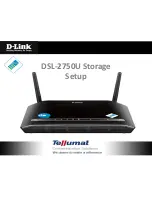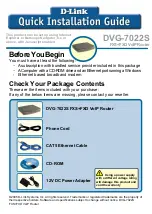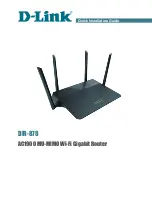
Chapter 10
241
Managing SNAplus2 from NetView
Using SPCF
Using SPCF
SPCF enables you to issue commands from the NetView console to
manage the running SNAplus2 system. These commands are the same
as those you can issue using the SNAplus2 command-line management
program
snapadmin
(as described in HP-UX SNAplus2 Administration
Command Reference).
For information about the syntax of an SPCF command, see “Overview of
RCF Command Syntax”. The command text following the appl
=node
parameter is a command issued to the SNAplus2 command-line
administration program, in the same format as you would specify it to
the
snapadmin
program on the HP-UX command line. Refer to HP-UX
SNAplus2 Administration Command Reference for information about the
syntax of administration commands and the parameters for individual
commands.
Restrictions on Administration Commands
Used with SPCF
Administration commands associated with a specific node's resources
(for example, the
query_node
and
define_local_lu
commands) are
sent to the node associated with the service point name specified on the
SPCF command. You cannot use the
-n
option to specify a different node
name; therefore you cannot issue commands to a specific node unless this
node is associated with a service point name at NetView. Commands that
are associated with domain resources or with the SNA network data file,
and not with a specific node, can always be issued. For information about
whether a command is associated with a node, with domain resources, or
with the SNA network data file, refer to the description of each command
in HP-UX SNAplus2 Administration Command Reference.
You cannot use the command-line option
-i
to specify input from a file or
from standard input. All commands must be entered directly at the
NetView console.
With
query_
* commands, you can use the command-line options
-a
(return all entries) and
-d
(return detailed information) in the same way
as when entering commands on the HP-UX command line.
Summary of Contents for HP-UX SNAplus2
Page 4: ...4 ...
Page 14: ...14 Contents ...
Page 22: ...22 ...
Page 23: ...23 1 SNA Terms and Concepts ...
Page 65: ...65 2 Introduction to SNAplus2 ...
Page 107: ...107 3 Administering SNAplus2 ...
Page 132: ...132 Chapter3 Administering SNAplus2 Using the Command Line Administration Program ...
Page 133: ...133 4 Basic Configuration Tasks ...
Page 142: ...142 Chapter4 Basic Configuration Tasks Configuring Logging ...
Page 143: ...143 5 Defining Connectivity Components ...
Page 167: ...167 6 Configuring Dependent LUs ...
Page 174: ...174 Chapter6 Configuring Dependent LUs Defining LU Pools ...
Page 175: ...175 7 Configuring APPC Communication ...
Page 208: ...208 Chapter7 Configuring APPC Communication Configuring APPC Security ...
Page 209: ...209 8 Configuring User Applications ...
Page 222: ...222 Chapter8 Configuring User Applications Configuring RJE Workstations ...
Page 223: ...223 9 Configuring Passthrough Services ...
Page 235: ...235 10 Managing SNAplus2 from NetView ...
Page 248: ...248 Chapter10 Managing SNAplus2 from NetView Using UCF ...
Page 249: ...249 11 Managing SNAplus2 Clients ...
Page 300: ...300 Chapter11 Managing SNAplus2 Clients Managing HP UX Clients ...
Page 301: ...301 A Configuration Planning Worksheets ...
Page 337: ...337 B APPN Network Management Using the Simple Network Management Protocol ...
Page 343: ...343 C Configuring an Invokable TP Using snaptpinstall ...
Page 353: ...353 D Using SNAplus2 in a High Availability Environment ...
















































